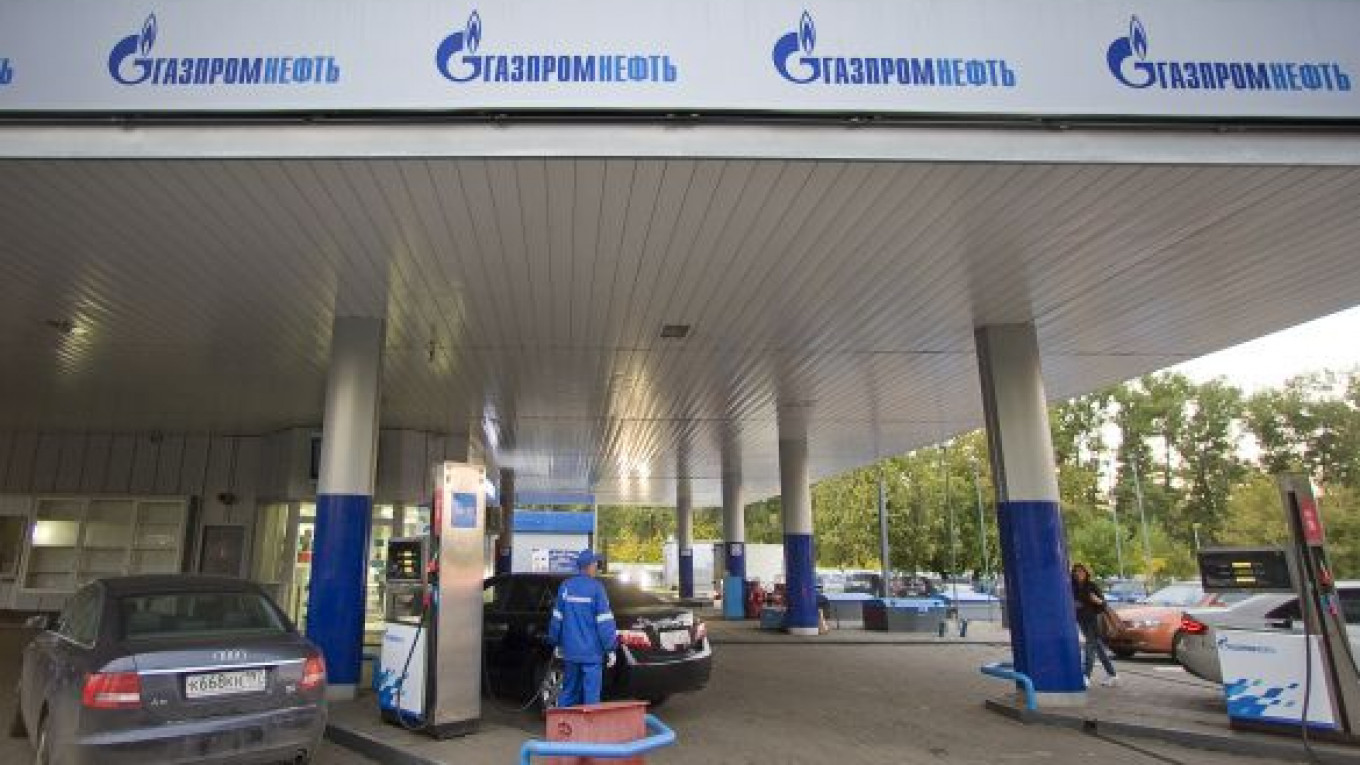The government could tap its fuel reserves to tame the recent surge in wholesale gasoline prices, Federal Anti-Monopoly Service chief Igor Artemyev said Tuesday.
He spoke as the agency was investigating a sharp price spike that occurred at the St. Petersburg International Commodities Exchange at the end of July.
Artemyev did not say how much of the stockpiled gasoline the authorities could release on the market, but said the reserves consisted of 1.2 million metric tons of fuel.
"The state can simply bring the price down via [market] interventions," he said at a news conference in Irkutsk, Interfax reported.
Artemyev added that there was also a separate, secret fuel reserve that would remain untapped in any effort to contain gasoline prices.
The Energy Ministry has agreed to the proposal, Artemyev said.
He insisted that the sales from the reserve should take place at the fuel exchange in order to provide transparency for the move.
Gasoline prices on St. Petersburg exchange trading went through the roof in July — reaching 39,000 rubles ($1,180) a metric ton — when demand suddenly exceeded supply by 300 percent.
A replenishment of supply from the state stockpile would ease the situation at a time when farmers are in the middle of harvesting season, Artemyev said.
Mikhail Turukalov, a director at consultancy Analytics of Commodity Markets, said the sales would have a greater "psychological" impact on the market if they went through the exchange.
"The entire market would see that commodity intervention," he said.
Previously, officials sold gasoline from the reserve without enlisting the services of the exchange, he said.
The government could restock in December when demand subsides, Artemyev said.
Artemyev proposed setting up the fuel reserve in 2005 when the country was going through similar price turbulence.
The government could also advise oil companies to sell off some of their own reserves, Artemyev said, Prime news agency reported. Refineries and oil storage facilities held 1.6 million tons as of last week.
Yevgeny Arkusha, president of the Russian Fuel Union, a lobby group, said that level could easily go down to 1.3 million tons without posing a risk to the stability of supply.
The usual market supply has dwindled because oil producers focused on exports before shutting down several refineries for planned maintenance later this fall, an anti-monopoly service official said, Vedomosti reported last month.
LUKoil, the country's second-largest oil producer, said in an Aug. 22 statement that it saw no "objective" reasons for the gasoline price to go up. The company has enough capacity to supply its customers, it said.
The International Energy Agency is concerned about current high oil prices, but does not see the need for any release of strategic stockpiles, as the market is well supplied despite supply outages in Libya, the group's head said Tuesday, Reuters reported.
Supply outages from Libya and concerns that the escalating situation in Syria could spill into other Middle East countries pushed up prices for international benchmark Brent to a six-month peak above $117 per barrel late last month. But Brent dropped to a one-week low below $113 on Tuesday.
Supply fears abated Tuesday after Russia offered to help put Syria's chemical weapons under international control, calming fears of an imminent strike against the country.
Contact the author at medetsky@imedia.ru
A Message from The Moscow Times:
Dear readers,
We are facing unprecedented challenges. Russia's Prosecutor General's Office has designated The Moscow Times as an "undesirable" organization, criminalizing our work and putting our staff at risk of prosecution. This follows our earlier unjust labeling as a "foreign agent."
These actions are direct attempts to silence independent journalism in Russia. The authorities claim our work "discredits the decisions of the Russian leadership." We see things differently: we strive to provide accurate, unbiased reporting on Russia.
We, the journalists of The Moscow Times, refuse to be silenced. But to continue our work, we need your help.
Your support, no matter how small, makes a world of difference. If you can, please support us monthly starting from just $2. It's quick to set up, and every contribution makes a significant impact.
By supporting The Moscow Times, you're defending open, independent journalism in the face of repression. Thank you for standing with us.
Remind me later.






